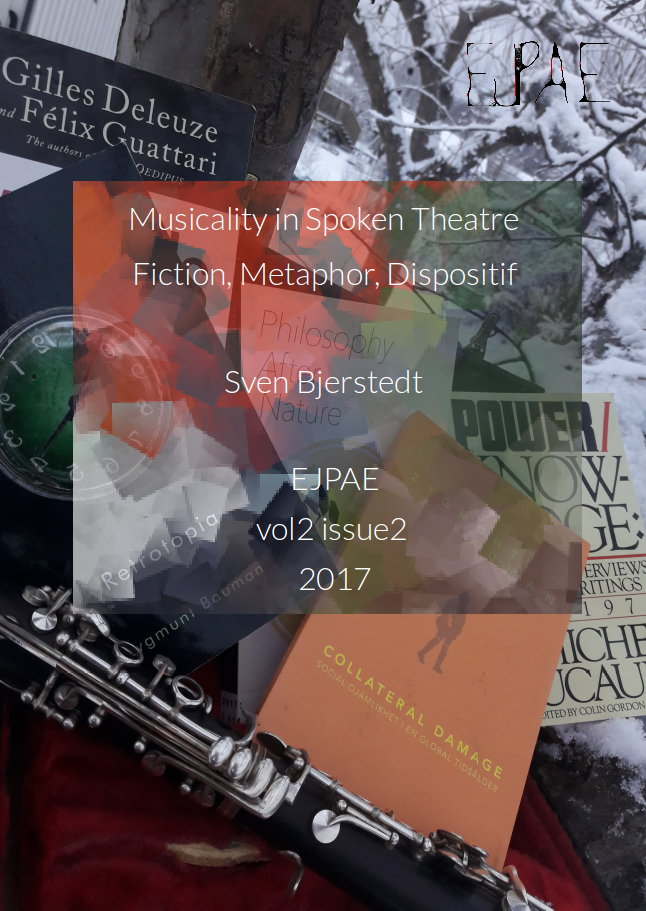Musicality in Spoken Theatre
Fiction, Metaphor, Dispositif
Keywords:
Musicality, acting, spoken theatre, intermedial conceptual loan, metaphor, fiction, dispositifAbstract
The purpose of this article is to address issues of artistic knowledge and artistic learning by way of studying, through a concrete exemplification, the meanings and implications of linguistic metaphor in artistic and educational conceptualizations of spoken theatre. Professional artists and pedagogues in this field habitually use the concept of musicality to point to key qualities in actors’ artistic work and learning processes. This article aims at a presentation, problematization and discussion of the findings of a recent extensive investigation into this usage. In order to attain this, the article is structured in six sections: an introductory presentation of (i) metaphorical language in learning processes and of (ii) the concept of musicality in the field of theatre; (iii) an overview of historical relations between music and theatre; (iv) a literature review of previous musicality research of relevance to the present topic; (v) a summary of a recent interview investigation into how Swedish theatre professionals view the meaning(s) of musicality in acting; and (vi) a problematization and discussion of the findings of that study, pointing to how this intermedial conceptual loan may be interpreted as a fiction, a metaphor, or a dispositif.

Published
Issue
Section
License
EJPAE provides immediate open access to all its published content. Users do not need to register or pay to read content.
https://creativecommons.org/licenses/by/4.0/
Authors of content published in European Journal of Philosophy in Arts Education (EJPAE) retain the copyright to their works. Content is free to be used by anyone as long as you "[...] give appropriate credit, provide a link to the license, and indicate if changes were made. You may do so in any reasonable manner, but not in any way that suggests the licensor endorses you or your use." and "No additional restrictions — You may not apply legal terms or technological measures that legally restrict others from doing anything the license permits." (from the Creative Commons licence agreement)
EJPAE does not charge any author or publication fees.
Authors are encouraged to deposit the final published version of their article for self-archiving (author's personal website) and/or archiving in an institutional repository immediately upon publication.




